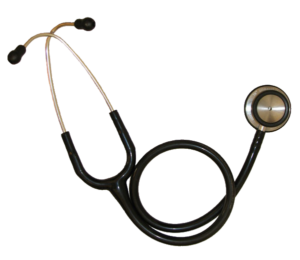 For the first time ever, one type of cancer has been reclassified as a non-cancer. An international panel of pathologists and clinicians has reclassified a type of thyroid cancer to reflect that it is noninvasive and has a low risk for recurrence.The panel renamed encapsulated follicular variant of papillary thyroid carcinoma (EFVPTC) as noninvasive follicular thyroid neoplasm with papillary-like nuclear features (NIFTP). There has been concern for a while of the costs (financial, physical, and mental) of the overdiagnosis and overtreatment for something that won't spread (it's "indolent" and "low-risk").
For the first time ever, one type of cancer has been reclassified as a non-cancer. An international panel of pathologists and clinicians has reclassified a type of thyroid cancer to reflect that it is noninvasive and has a low risk for recurrence.The panel renamed encapsulated follicular variant of papillary thyroid carcinoma (EFVPTC) as noninvasive follicular thyroid neoplasm with papillary-like nuclear features (NIFTP). There has been concern for a while of the costs (financial, physical, and mental) of the overdiagnosis and overtreatment for something that won't spread (it's "indolent" and "low-risk").
There have been discussions for some time now in the medical community regarding the move away from the word "cancer" in the description of early stages of both breast and prostate cancer. In 2013, a medical team sanctioned by the National Cancer Institute proposed that a number of premalignant conditions, including ductal carcinoma in situ and high-grade prostatic intraepithelial neoplasia, should no longer be called "cancer." Instead, the conditions should be labeled something more appropriate, such as indolent lesions of epithelial origin (IDLE), the group suggested. " Use of the term 'cancer' should be reserved for describing lesions with a reasonable likelihood of lethal progression if left untreated," the group said at the time.
From Futurity: NONINVASIVE THYROID ‘CANCER’ ISN’T CANCER
The reclassification of a noninvasive type of thyroid cancer that has a low risk of recurrence is expected to reduce the fears and the unnecessary interventions that come with a cancer diagnosis, experts say. The incidence of thyroid cancer has been rising partly due to early detection of tumors that are indolent or non-progressing, despite the presence of certain cellular abnormalities that are traditionally considered cancerous, says senior investigator Yuri Nikiforov, professor of pathology at the University of Pittsburgh.
“This phenomenon is known as overdiagnosis,” Nikiforov says. “To my knowledge, this is the first time in the modern era a type of cancer is being reclassified as a non-cancer. I hope that it will set an example for other expert groups to address nomenclature of various cancer types that have indolent behavior to prevent inappropriate and costly treatment.”
In particular, a tumor type known as encapsulated follicular variant of papillary thyroid carcinoma (EFVPTC) has increased in incidence by an estimated two- to three-fold over the past 20 to 30 years and makes up 10 to 20 percent of all thyroid cancers diagnosed in Europe and North America. Although studies have shown EFVPTC is not dangerous, it is typically treated as aggressively as other types of thyroid cancer. At the recommendation of the National Cancer Institute, the panel sought to revise the terminology and to see if the word “cancer” could be dropped from its name.
As reported in JAMA Oncology, two dozen experienced pathologists from seven countries and four continents independently reviewed 268 tumor samples diagnosed as EFVPTC from 13 institutions....In a group of more than 100 noninvasive EFVPTCs, there were no recurrences or other manifestations of the disease at a median follow-up of 13 years. They decided to rename EFVPTC as “noninvasive follicular thyroid neoplasm with papillary-like nuclear features” or NIFTP. The new name cites key features to guide pathologists in diagnosis, but omits the word “cancer,” indicating that it need not be treated with radioiodine or other aggressive approaches.
“We determined that if NIFTP is carefully diagnosed, the tumor’s recurrence rate is extremely low, likely less than 1 percent within the first 15 years,” Nikiforov says. “The cost of treating thyroid cancer in 2013 was estimated to exceed $1.6 billion in the US. Not only does the reclassification eliminate the psychological impact of the diagnosis of ‘cancer,’ it reduces the likelihood of complications of total thyroid removal, and the overall cost of health care.”
